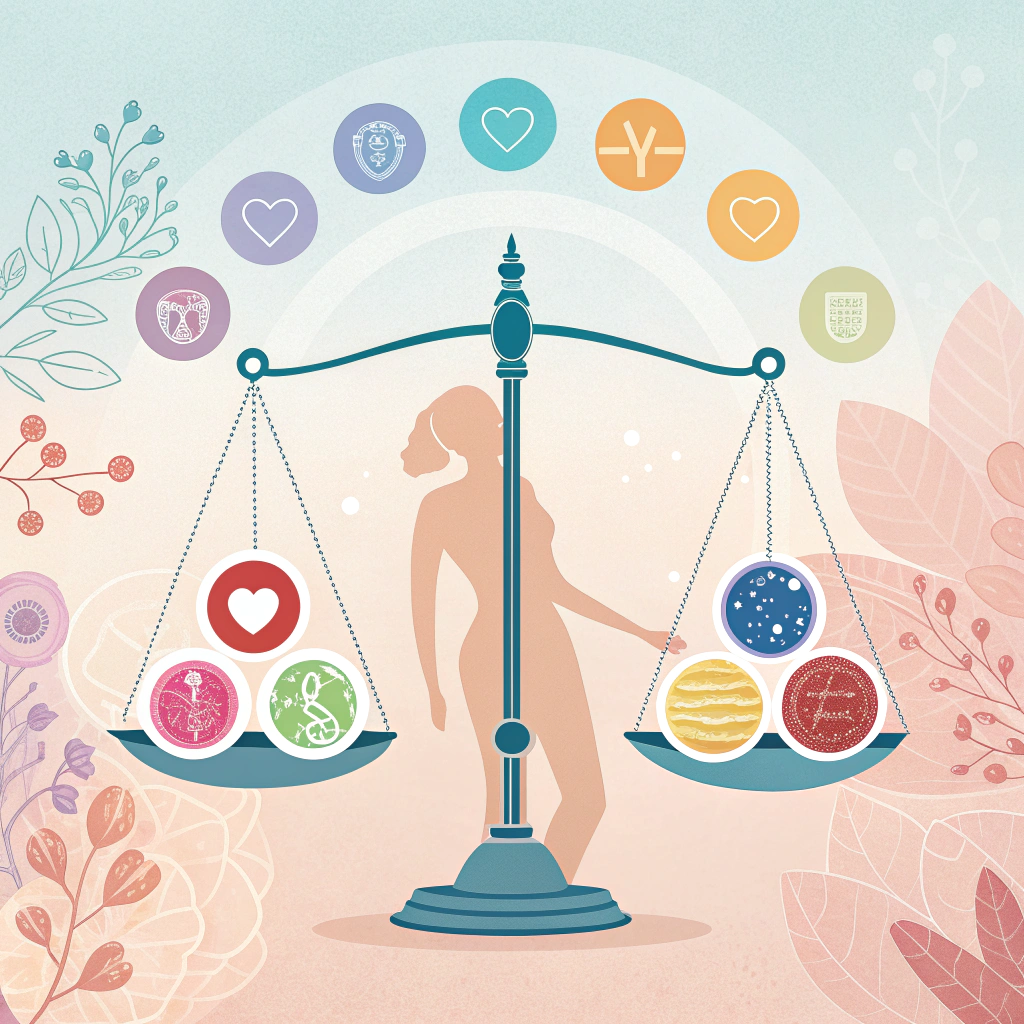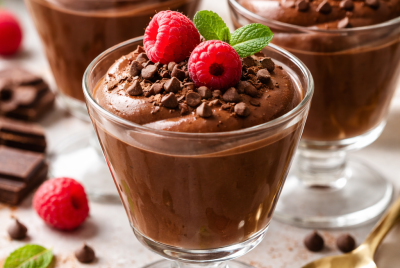How To Balance Hormones Naturally
Let’s be honest—when our hormones are out of balance, everything feels off. Whether it’s mood swings that make you feel like you’re on an emotional rollercoaster, stubborn weight gain that won’t budge, or energy levels that crash harder than your phone battery at 2 p.m.—you’re not alone.
Hormones are our body’s chemical messengers, controlling everything from our metabolism and sleep to mood and fertility. And while factors like stress and sleep play a huge role, what we eat can truly make or break our hormonal health.
So, let’s dive into the top 10 foods for hormone balance—especially for women—backed by science and sprinkled with a bit of real-life experience.
Top 10 Foods for Hormone Balance
1. Flaxseeds – Tiny Seeds with Big Hormonal Power
If there’s one food that deserves the title “Hormone Hero”, it’s flaxseed. These tiny seeds are packed with lignans, plant compounds that help balance estrogen levels naturally.
In fact, research published in the Journal of Clinical Endocrinology & Metabolism found that lignans can reduce excess estrogen in the body—especially helpful during PMS or perimenopause.
Flaxseeds are also rich in omega-3 fatty acids and fiber, which support gut health. And since estrogen metabolism depends heavily on your gut, this is a double win!
👉 How to use: Add 1–2 tablespoons of ground flaxseed to smoothies, oatmeal, or salads. (Tip: Always use ground flaxseeds—whole ones just pass through undigested.)
2. Avocados – The Creamy Hormone Helper
Avocados aren’t just Instagram-worthy—they’re hormone gold. Rich in healthy monounsaturated fats, they help your body produce estrogen, progesterone, and testosterone in balanced amounts.
A study in the Journal of the American Heart Association showed that eating avocados can improve levels of HDL (“good”) cholesterol and reduce inflammation—both essential for hormonal balance.
Plus, they contain vitamin E, which helps regulate your menstrual cycle and supports reproductive health.
👉 How to use: Add slices to your toast, mash into guacamole, or blend into a hormone-supportive smoothie with spinach and almond milk.
3. Broccoli & Cruciferous Veggies – Nature’s Detox Squad
Here’s a little secret: your liver is your hormone-processing factory. And cruciferous vegetables like broccoli, kale, Brussels sprouts, and cauliflower are your liver’s favorite employees.
They contain a compound called DIM (diindolylmethane), which helps metabolize excess estrogen into safer forms. According to studies in Cancer Epidemiology, Biomarkers & Prevention, DIM can even protect against hormone-related cancers.
👉 How to use: Steam or lightly sauté your greens to keep nutrients intact. I love tossing roasted Brussels sprouts with olive oil and garlic for a comforting, hormone-friendly side dish.
4. Chickpeas – Plant-Based Protein for Progesterone Support
Chickpeas are rich in vitamin B6, a nutrient that plays a key role in progesterone production—the hormone that helps counterbalance estrogen and supports a calm, stable mood.
If your luteal phase (the second half of your menstrual cycle) tends to come with irritability or anxiety, upping your B6 intake can help. Studies in the Journal of the American College of Nutrition found that vitamin B6 supports neurotransmitters like serotonin and dopamine—aka your happy hormones.
👉 How to use: Make a hearty chickpea salad, roast them for a crunchy snack, or whip up homemade hummus.
5. Berries – Antioxidant Magic for Hormone Health
Blueberries, raspberries, strawberries—take your pick. These little gems are packed with antioxidants that help combat oxidative stress, a major disruptor of hormone function.
Antioxidants also support the adrenal glands (the ones that produce cortisol and DHEA). When you’re stressed, your body pumps out more cortisol, throwing other hormones off balance. Berries help reduce that oxidative load.
A study in Nutrients showed that polyphenols in berries can lower inflammation markers and support overall endocrine function.
👉 How to use: Add a cup of mixed berries to your breakfast or enjoy them as a guilt-free dessert.
6. Pumpkin Seeds – Zinc for Fertility and PMS Relief
Pumpkin seeds (or pepitas) are a zinc powerhouse, which makes them amazing for fertility, skin, and immune function. Zinc is crucial for ovulation and progesterone production, and low levels are often linked to irregular cycles or PMS.
Research from Biological Trace Element Research found that zinc supplementation can improve menstrual regularity and reduce premenstrual symptoms.
👉 How to use: Sprinkle pumpkin seeds over your salads, soups, or smoothies—or simply snack on a handful a day.
7. Fermented Foods – Heal Your Gut, Heal Your Hormones
Your gut and hormones are best friends. A healthy gut helps metabolize and excrete excess estrogen, while an imbalanced microbiome can lead to estrogen dominance—causing bloating, mood swings, and cramps.
Foods like sauerkraut, kimchi, kefir, and kombucha feed your gut bacteria, supporting your “estrobolome,” the gut microbes responsible for processing estrogen.
A 2020 study in Frontiers in Endocrinology confirmed that the gut microbiota plays a direct role in regulating estrogen levels.
👉 How to use: Add a spoonful of sauerkraut to your meals or sip kombucha as a fizzy, hormone-friendly drink.
8. Sweet Potatoes – The Slow-Burning Carb That Loves Your Thyroid
Sweet potatoes are more than just cozy comfort food—they’re rich in complex carbs and beta-carotene, which support thyroid function and steady blood sugar levels.
When your blood sugar spikes and crashes, cortisol and insulin levels follow suit, throwing estrogen and progesterone off track. The fiber in sweet potatoes helps keep everything balanced.
They’re also a great source of vitamin A, crucial for ovarian health and progesterone production.
👉 How to use: Roast them, mash them, or make sweet potato fries. Add a drizzle of olive oil for extra hormone-supportive fats.
9. Walnuts – The Brain and Hormone Nut
Walnuts are one of the best plant sources of omega-3 fatty acids, which support hormonal health, brain function, and lower inflammation.
Omega-3s play a vital role in the production of prostaglandins—compounds that help regulate the menstrual cycle and ease cramps. A study in Reproductive Health showed that omega-3s improve menstrual regularity and reduce pain in women with PMS or endometriosis.
👉 How to use: Add chopped walnuts to your oatmeal or sprinkle them on top of salads for a satisfying crunch.
10. Dark Chocolate – The Delicious Hormone Booster
Yes, you read that right—dark chocolate can actually help balance your hormones! The key is choosing high-quality chocolate with at least 70% cacao.
Dark chocolate is rich in magnesium, a mineral that helps reduce cortisol (your stress hormone) and supports healthy progesterone levels. It also increases serotonin, boosting mood and reducing PMS-related anxiety.
A study in the Journal of Trace Elements in Medicine and Biology found that magnesium deficiency is linked to menstrual cramps and mood fluctuations.
👉 How to use: Enjoy a square or two of dark chocolate as your daily self-care ritual—it’s science-approved indulgence!
The Science of Balance

Science supports what many women already feel intuitively: food deeply affects how we feel.
Research in The Journal of Nutrition emphasizes that diets rich in omega-3s, fiber, antioxidants, and plant-based proteins can improve estrogen metabolism, support thyroid health, and stabilize mood.
When you nourish your body with the right foods, you’re not just balancing hormones—you’re nurturing your entire ecosystem.
By adding these 10 hormone-balancing foods to your daily routine, you can support smoother cycles, steadier moods, and radiant energy from the inside out.
So next time you’re planning your meals, think of your plate as your personal hormone support system. Because when your hormones are happy, you feel unstoppable.
Discover plant-based recipes.
Putting It All Together: How to Balance Your Hormones Naturally
Balancing your hormones naturally is all about supporting your body’s innate wisdom rather than fighting against it. Think of your hormones as an orchestra—each one plays a unique instrument, and when they’re in tune, everything sounds harmonious. But when stress, poor diet, or lack of sleep throw off the rhythm, the whole performance feels off. The good news? You have more control than you might think. By nourishing your body, managing your stress, and living in alignment with your natural rhythms, you can help your hormones find their balance again.
Start with your diet, because what you eat directly affects your hormonal harmony. Whole, nutrient-dense foods are your best allies—think leafy greens, cruciferous vegetables, healthy fats, and plant-based proteins. These foods help your liver detoxify excess hormones and keep your blood sugar stable throughout the day. When your blood sugar is steady, cortisol and insulin (two major hormones that often throw the rest off balance) stay in check. Avoiding processed foods, refined sugar, and trans fats can make a remarkable difference in just a few weeks.
Next, focus on stress management, because cortisol—the body’s main stress hormone—has a powerful influence on everything from thyroid function to menstrual regularity. Chronic stress can lead to irregular cycles, fatigue, and even stubborn weight gain. Incorporate calming practices into your daily routine—yoga, meditation, journaling, or even just a mindful walk in nature. These moments of calm signal to your body that it’s safe, allowing your hormones to regulate naturally.
Sleep is another key pillar of hormone balance. While you rest, your body performs crucial repair work and regulates hormones like melatonin, leptin, and growth hormone. Aim for 7–9 hours of quality sleep each night and try to maintain a consistent bedtime. Dimming the lights and avoiding screens before bed can help your body produce melatonin naturally, setting the stage for deeper, more restorative sleep.
Movement is also essential, but it doesn’t have to mean intense workouts. In fact, gentle exercise—like walking, yoga, or strength training—can be more beneficial for hormone balance than overtraining. Too much cardio or high-stress exercise can elevate cortisol levels, which may disrupt your menstrual cycle. Find movement that energizes rather than exhausts you, and listen to your body’s cues throughout your cycle.
Finally, self-care and mindfulness tie it all together. Slowing down, breathing deeply, and taking moments of rest can help your nervous system stay balanced. Hydrate well, spend time outdoors, and connect with people who lift your spirits. Your hormones respond to your overall sense of safety and nourishment, not just what’s on your plate.
In short, balancing your hormones naturally is a holistic journey. It’s about creating an environment—internally and externally—where your body feels supported, calm, and cared for. With consistency and compassion, you’ll begin to notice subtle shifts: more energy, a clearer mind, better moods, and a sense of ease within your own body. That’s the beauty of hormone harmony—it’s not just about feeling balanced, it’s about feeling like yourself again.
Further Reads
- Best Menopause Supplements That Changed My Life
- How to Get Rid of Brain Fog During Menopause
- Why Ashwagandha Gummies Are Revolutionizing Stress Relief
FAQs About How To Balance Hormones
1. How long does it take for food to balance hormones?
Usually, you can start noticing changes within one to three menstrual cycles, depending on your overall lifestyle and consistency.
2. Can men also eat these hormone-balancing foods?
Of course! These foods support hormonal health for everyone—they just target specific benefits for women’s cycles.
3. Are supplements necessary for hormone balance?
Not always. Many nutrients can be obtained through food, but some women benefit from supplements to escape the menopause rollercoaster. Always consult your healthcare provider before starting new supplements.
4. What foods should I avoid for hormone balance?
Try to limit processed foods, refined sugars, alcohol, and trans fats—they can spike cortisol and insulin, worsening hormonal imbalances.
5. Can a vegan diet support healthy hormones?
Yes! A well-planned vegan diet rich in plant-based proteins, healthy fats, and whole foods can provide everything your body needs for optimal hormone balance.




